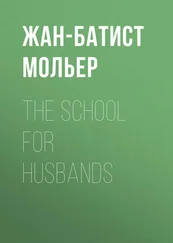The Epilogue of Mein Kampf expresses in all clearness the whole purpose of education in Nazi Germany. “A state which, in the era of race-poisoning, devotes itself to the care of its best racial elements must one day become master of the world.”
That is the aim: to make the Nazis the rulers of the world. It is towards this that Hitler stares, that Germany is equipping itself; this is fixed before the eyes of the children,
DR. RUST AND OTHER EDUCATORS
After a year of preparation, transition and experiment in the schools, Hitler’s educational program was made effective on April 30, 1934, the day on which Dr. Bernhard Rust was appointed “Reich Minister of Science, Education, and Culture For the People ( Volksbildung ).” Dr. Rust, an unemployed teacher from Hanover, had belonged to the Nazi Party since 1922. In 1925, he was promoted to the post of Gauleiter of the Party for the district of Hanover and Brunswick. He held office as educator of the republican democratic youth of his home town until 1930. Indeed, it seemed not to be his political activities against the State, whose employee he was, that led to his dismissal, but rather his nervous disorder, which was causing violent attacks of complete insanity at increasingly short periods. Dr. Rust was forced to take longer and longer holidays at sanatoriums, and the State could not hold itself responsible for his ability as a teacher, even during the moments of comparative clarity in the Doctor’s mind.
Bernhard Rust had been decorated with the Iron Cross during the War, and had written about his experience in these terms to his son: “Received today under the thunder of guns the Iron Cross. Your hero father.”
It’s a good story: Rust rises in the Party, to which the ex-teacher seems highly learned, and lands his post right after the success of the grab for power. He moves up with increasing momentum. As early as February, 1933, he is Prussian Minister of Culture, and a year later he is promoted to Dictator of Education. He has held his office with the dilettante laxness characteristic of Nazi administration, and with the nervous unpredictable jitters that, four years before, had taken away his teacher’s job. Rust makes laws now, and repeals them when he has convinced himself of their total impracticability. He not only reduced the period of compulsory public school training from thirteen years to twelve; he went farther, and tried to cut the school week. It had always been customary in Germany to go to school six days out of the seven, with only Sunday as holiday. By an edict of June 7, 1934, Rust canceled Saturday, calling it the “Reich Youth Day.” On Saturdays there were to be no lessons; only “national festivals.”
The curtailed week proved insufficient right away. The demands of the curriculum were too heavy. But the Minister brought everything back on the track, apparently, by means of an invention of his called the “rolling week.” A week began on Monday, went through six school days, omitting Saturday (national festival day) and Sunday (the regular holiday). But the next week was to begin on Tuesday, the one after that on Wednesday, and so on. The result was impossible confusion. And the Minister took months to grasp the fact that, no matter how he rolled his eight-day week, he could never put fifty-two such weeks into a calendar year. At last, rather than devise a new calendar, he decided to call off the whole thing, Reich Youth Day, rolling week, and all.
But by that time there was a new period in the measurement of time. The principal of a German high school, who spends his vacations with relatives in Prague, told them about a “Rust,” which, he explained, was “the period from the moment when the Minister of Education issues an edict to the moment when he revokes it.”
At present, the school week begins on Monday, and includes Saturday, as it used to — or, rather, as never before. For the new spirit has taken hold in the schools since 1934. The teachers, who might as a group have originally had many mental reservations toward Nazism, have fallen completely under its control, and tens of thousands of them — men of science and of the spirit, men with pedagogical experience and a sense of responsibility — are unresisting now, tools to the new leaders’ hands.
Spiritual Germany on its shield, defeated without battle and without honor, presents an image of tragic loss; and those who did oppose the enemy were always heroes, and often martyrs. Even the following passage, although not a notably courageous one, reflects to the credit of the teachers. On March 1, 1933, The Leipzig Teachers’ Journal declared under the heading, “The Field of Ruin”:
“…The 250 Reich Ministers whom we have had since 1918 (53 of whom were Democrats and 197 Liberals) were surely none of them without faults; they were not magicians, but at least they were not irresponsible…. Has nothing really been done for Germany’s youth since 1918? Did sociologic pedagogics exist only before that time? The Weimar Constitution contributed nothing save freedom in teaching and scientific research (Art. 142), the promise of uniform training for teachers (Art. 143), a State organization for the supervision of schools (Art. 144), the launching of a reorganization of the professional school (Art. 145), the institution of four years of uniform preparation for higher education (Art. 146), the support of students of special talent with limited means, the cancelation of tuition fees and often even of the cost of textbooks. Respect for the opinions of others!… Do all these things really, according to the Hitler-Hugenberg Cabinet, deserve to be condemned and done away with, although the teachers during the period in question regarded them as innovations to be gratefully accepted and regard them even today as of great benefit?”
That quotation appeared one month after Hitler came to power. It was the last expression of courage from the German teachers that reached the public. At the same time, the statement seems so naive, so ignorant of the true purposes of the new system as to make its “courage” almost an error of judgment. It also demonstrates the complete unpreparedness of the teachers and their helplessness before what was to take place. They ask blankly whether “freedom of teaching and science” and “consideration of the opinions of others” are to be condemned. “Yes,” comes the answer. “Of course, they are to be condemned and done away with.” And there is no further effort made by the teachers to save their souls.
The psychological and material motives that lie behind such obedience are another matter. But the “Laws,” “Edicts,” “Official Advice,” and other pertinent facts are before us.
In 1937, 97 per cent of all teachers belonged to the National Socialist Teachers Union (N.S.L.B.), according to Reichswalter and District Leader Wächtler; and among these were seven district leaders, seventy-eight Kreis leaders, and over two thousand dignitaries. Seven hundred have won the honor badge of the Party. These teachers are in the service of the movement; they may even be regarded as representative, and as Nazis they cannot be attacked, no matter how they function as teachers.
The Nachrichtenblatt published Herr Wächtler’s photograph: he was in uniform, under a swastika, and looked like a mad corporal who has waked to find himself a general in the field of education.
The steps taken before the issuance of Herr Wächtler’s summary are typical.
The first thing that happened, in the winter of 1933, was that all teachers of “non-Aryan” or Jewish descent were relieved of their posts. An edict was issued on July 11, 1933, that included teachers with all other State officials, ordering them to subordinate their wishes, interests, and demands to the common cause, to devote themselves to the study of National Socialist ideology, and “suggesting” that they familiarize themselves with Mein Kampf. Three days later, a “suggestion” was sent to all those who still maintained contact with the Social Democratic Party, that they inform the Nazi Party of the severance of these connections. Committees were formed to see that it was carried out, and whoever hesitated was instantly dismissed. The purge was on.
Читать дальше












